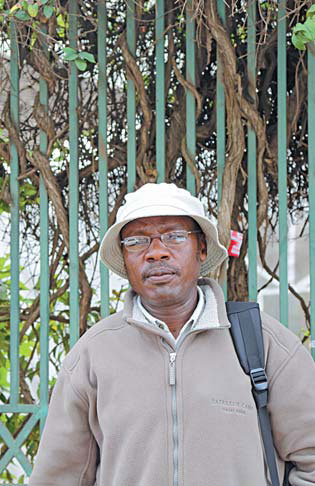Communication key for global tourism
A top guide says that while Kenya is better prepared for Chinese tourists, language can still pose difficulties
Kenya is eager to welcome more Chinese tourists, but one problem is a lack of communication between tourists and guides because of the language barrier, says one of Kenya's top guides.
This has also led some Chinese to be blamed for violating park regulations, according to Paul Kirui, a gold standard tourist guide, of which there are only about 20 in the country.
Kirui was cited early this year by the prominent travel magazine Conde Nast Traveler as being among the top 25 tourist guides in Africa.
Things seemed to change for Chinese tourism to Kenya in 2010, he says. "The number of Chinese tourists has climbed steadily since then," Kirui says.
However, the language barrier may result in some problems because most locals don't speak Chinese. "Many Chinese tourists may have problems in getting around," he says.
The language barrier also makes communication between guides and Chinese more difficult. That can be compounded by the relative inexperience of many Chinese tourists.
"It's good for Chinese to be aware of what people think of them. Some of them are innocent, just like children. They are so excited when they see elephants or other animals that they make noise," says Kirui, who is the chairman of Kenya Professional Safari Guides Association.
Elephants can become startled and even become dangerous due to noise or sudden movements.
Kirui should know because he grew up herding cows, and learned from his father how to judge the movements of dangerous animals by their tracks and to discern the coming and going of animals by their calls. He also worked as an animal behavior consultant for two programs on the BBC, Big Cat and The Truth About Lions.
"It's often good to inform people to read the rules of the park, like not making noise, not standing on the car and not making sudden movements. Because of the language barrier, however, the safari driver may not be able to tell them to keep quiet," he says.
Kirui, who has been a tour guide for 22 years, says such issues arise mostly due to a lack of communication.
"With communication, people change. Most French guests used to be the same (as Chinese tourists). After we had more French-speaking tourists, and since many French can read English, they changed.
"If we have more communication, the problem will go away," he says.
Kirui, 46, wearing a cream-colored bucket hat and an outdoor sports coat, spoke to China Daily recently at the Java coffee restaurant in the Sarit Center, having brought a backpack and apparently ready for his upcoming safari to Tsavo West National Park.
He had just finished a seven-day safari in Masai Mara National Reserve. He says his schedule is often tight from July to December, when he usually gets only a week off to be with his family.
He says Kenya, in some ways, is well prepared to accommodate the growth of Chinese tourism, such as having a variety of hotels of different levels. "No matter whether you are rich or not, once you come, you can find a place."
He also says that as his country is becoming better acquainted with Chinese, Kenyans have learned more about what Chinese like and what they do not.
The infrastructure in Kenya is better than in other countries in East Africa. "Though Serengeti (National Park) is 10 times the size of Masai Mara, there are 60 lodges in Masai Mara. In the Serengeti, however, there are only 20." The Serengeti park is in northern Tanzania, whereas the Masai Mara National Reserve is a part of the same ecosystem but in Kenya.
It is also possible to take a scheduled flight or chartered aircraft to the Masai Mara reserve to avoid the tiring road journey.
Kirui says he is seeing a growing number of high-end customers who prefer small but exclusive lodges.
These visitors may spend $1,000 to $2,000 per night for accommodation, Kirui says. He predicts the number of Chinese tourists in this group will grow as their country become more prosperous.
houliqiang@chinadaily.com.cn
|
Paul Kirui, a gold standard tourist guide in Kenya |



















